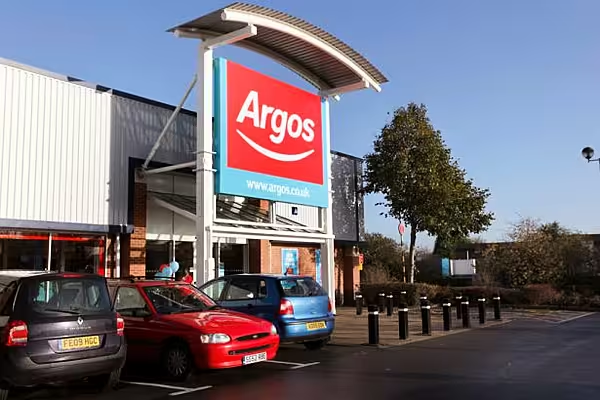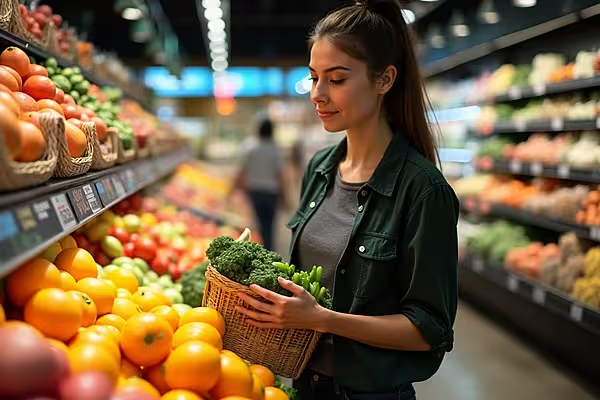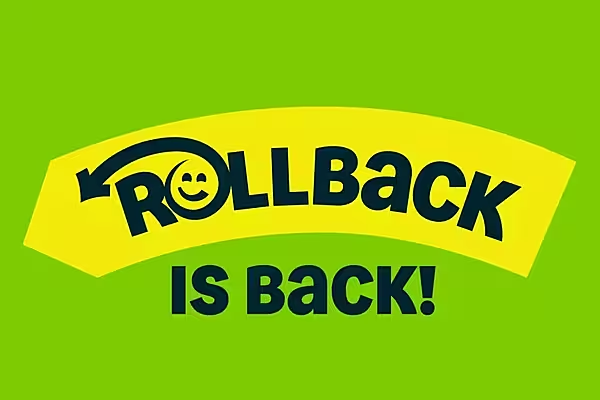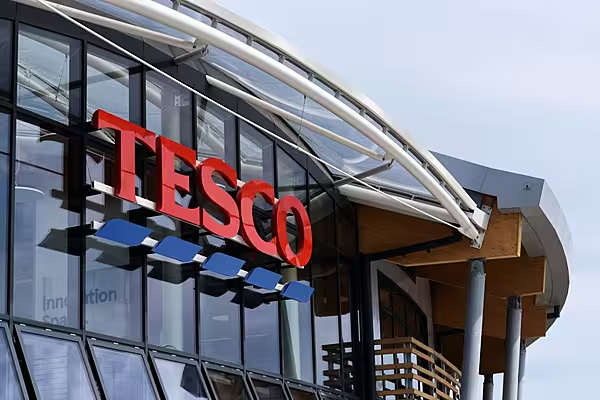A year ago, Sainsbury reported sales that were better than expected, and upgraded its profit forecasts.
There were no such pleasant surprises this time around. Same-store sales fell 1.1 percent in the three months to Sept. 24, slightly below analyst forecasts. Its valuation has slipped behind its competitors, and that looks likely to persist.
Sainsbury is blaming the recent stumble on stubborn food price deflation, and its decision to cut prices on everyday items. But the broader challenges it faces makes its reversal in fortunes even more worrying.
Having acquired Argos for 1.3 billion pounds ($1.7 billion) Sainsbury is now engaged in a head-to-head fight with Amazon to sell household goods ranging from garden furniture to snow shovels. While Argos has been building out whizzy delivery systems, including same-day delivery, Amazon has also been investing heavily in its one-hour service.
A further wrinkle is that Sainsbury faces higher costs for buying in the products it sells at Argos -- most of the chain's wares ultimately come from suppliers in China and south Asia, and are usually charged in dollars. Though Sainsbury says the effect of sterling's devaluation following the Brexit vote is unclear, and low oil prices may be among the offsetting factors, the impact looks pretty obvious: its sourcing costs will get more expensive.
It will face a struggle to pass these on to customers, and already-thin margins at both Argos and Sainsbury leave the new parent little room to absorb higher prices.
Even the weather isn't helping. Hot weekends aren't conducive to shopping for clothing or home furnishings, and Sainsbury said its clothing business had its first ever sales decline.
And competition is getting stiffer. Tesco is finally regrouping, helped in part by lower prices on fresh meat, fruit and vegetables. Its fictitious farm brands may have been controversial, but they've helped defend it against German discounters Aldi and Lidl. Morrison is also recovering, recently reporting the best same-store sales growth of any major U.K. supermarket since 2014. And it has its own manufacturing facilities to help it deliver lower prices.
Meanwhile, the German stores are showing no pause in their aggressive British push. They are still planning to open hundreds of stores, despite their own sales growth also slowing.
While shares in Tesco and Morrison have recovered since the start of this year, helped by their better performances, Sainsbury has been held back by concerns that Argos may be a damaging distraction. True, there was some good news today, in that Argos's same-store sales were the strongest for more than two years. But that's not likely to last.
As Gadfly has long argued, the deal had much more against it than in favor, and that was before Britain's vote to leave the European Union threw a long shadow over the prospects for consumer spending. Tuesday's Confederation of British Industry survey showing slower retail sales shows the damage from the vote may be starting to hit.
Sainsbury shares trade on a forward price to earnings ratio of around 12 times, a hefty discount to both Tesco and Morrison. Given the added risks from the Argos deal, until Sainsbury delivers any more pleasant surprises, that looks deserved.
This column does not necessarily reflect the opinion of Bloomberg LP and its owners.
News by Bloomberg, edited by ESM. To subscribe to ESM: The European Supermarket Magazine, click here.













